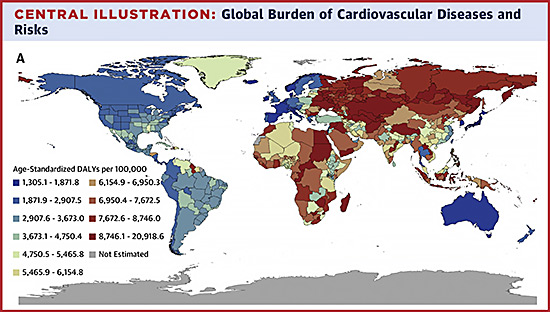Habitual consumption of even small amounts of processed meat, sugary drinks, and trans fatty acids…
Followed by
The data showed that people who ate as little as one hot dog a day …
As little as one hot dog a day? I eat like one every few months. How many hot dogs is the average American eating daily?
You don’t have a daily dog? What else would you eat after dinner?
No hot dog surprise cereal either, apparently!
Obligatory Whitest Kids U Know plug
I talk about this one all of the time. Such a classic.
I would be really surprised if most people average one a week. But that doesn’t mean it’s not happening.
Yeah but does lunch meat count?
I ate some pepperoni on pizza, that surely is doing damage.
The Toddlers Union of America would like a word…
deleted by creator
Yeah, but ignoring that small oversight, they can get an attention-grabbing headline that meats their agenda.
And it’s known that more than 2 - 3 times meat a week is unhealthy.
Which reminds me. I need to start eating chicken again. Rn I have a rotating menu of fish, tofu, beef.
Surely 1g every day is better than 750g once a week. Is there a quantity to that?
deleted by creator
Thank you for that inspiring addition to the conversation.
We know we can Google it, but asking questions is what creates discussion.
Like… is it written to excite anxiety?
Getting a colorectal cancer probability in a lifetime is about 0.04, eating hotdog adds 8% to it or ~0.003. I like how precisely we can measure it using regular statistics, but what does it tell to a human being? To me it tells nothing about hotdogs
I guess the point is that it shows the correlation between processed food and cancer is statistically significant. As in there is definitely a link, and this meta analysis shows good evidence this link exists. Even if the impact is small.
As for the day to day impact of this study, I’m not sure there is one. Processed food is already on WHOs list of things that definitely cause cancer.
Getting a colorectal cancer probability in a lifetime is about 0.04, eating hotdog adds 8% to it or ~0.003.
Depending on the average amount of processed meats eaten, it could also show not eating a hot dog every day will reduce your risk of cancer by about that much. It’s probably only important in the cumulative though. When we have studies like this for many foods, you could put together a diet that reduces your chance of cancer by 20 or 30%, say. But one food’s impact like this is probably only important to scientists.
So getting back to your original question:
Like… is it written to excite anxiety?
Yes. Anxiety drives clicks which drives revenue.
It’s probably only important in the cumulative though. When we have studies like this for many foods, you could put together a diet that reduces your chance of cancer by 20 or 30%, say.
I don’t think that quite transfers, epidemiology is very weak, it only surfaces associates which is a good point to do a interventional trial but that is rarely done. The core problem with these studies is that to isolate variables they have to make a model of that variable in isolation, this relies on both assumptions of the model maker, accuracy of data, and is very vulnerable to p-hacking. Model assumptions that a hamburger and fries counts as meat, but not vegetable (potato) also impact the outcomes.
The large observational food surveys conducted typically have a 1-4 year questionnaire about how many servings of different food someone ate. Once every 4 years leaves lots of room open for forgetfulness.
There is a huge problem with healthy user confounders, people trying to follow all the modern health advice are going to skew results - not because all of the advice is correct, but some of it is. If someone exercises regularly, practices mindfulness, avoids processed foods, avoids meat - Are their improvements due to any single variable, yet on a food survey they get over represented because of these exclusionary behaviors.
We also have multiple different epidemiology studies covering the same topics and getting different results, that probably means we are focusing on the wrong question, it’s noisy.
From my reading its far more likely the modern epidemic of chronic disease is caused by the introduction of excessive carbohydrates in processed foods, the novel addition of industrial oils (again processed foods) into the food supply - they account for 30%!!! of the average westerners average calorie intake, exposure to food contaminates from agrochemicals such as pesticides. The metabolic context of people filling out these surveys is a critical part that is being omitted.
In the following graphs notice how the incidence is very high in countries with traditionally low meat consumption like india? This indicates the hypothesis generated from the abstract paper isn’t asking the right question.
example graphs
CVD

Type 2 Diabetes

My point is that you can follow every bit of advice from associative food surveys, but since the wrong questions are being focused on, your outcomes wont be as good as you hope. Quite frankly epidemiology is more about publicity and marketing then being part of the scientific process.
If you haven’t read about the Metabolic Theory of Cancer I highly recommend giving it a read. It’s a much more compelling model, and explains the surge of cancer since 1900, as well as actionable steps to reduce incidence (reduce sugar and inflammation).
1000 people show up to the annual picnic. If we remove hot dogs from the market, and dont serve them at our picnic, or any picnic, ever, 40 of those 1000 people are going to get colorectal cancer.
If we do serve hot dogs at our picnic (and every other picnic), 43 people are going to get colorectal cancer at some point in their lives.
Pass the mustard.
What if you could have a grilled fish instead though?
Mercury.
Isn’t that only an issue with some types of fish though, like tuna?
Fish are carnivorous, and mercury is bioaccumulative. So, larger fish tend to have higher concentrations than smaller fish, but pretty much all fish have some level of mercury. There is no “safe” concentration.
But the real problem with your scenario is that I’d prefer hunger pangs over fish, grilled or otherwise.
Freshwater fish also exist, or areas with less contamination. If you won’t eat fish though that sounds more like a you problem.
Like I said, it may be a scientifically interesting study, but the broader audience can’t take anything from it but anxiety.
a diet that reduces your chance of cancer by 20 or 30%, say.
That would be significant, but probably not today. The lifetime risk of dying as a pedestrian in a car accident is around 1 in 100, so mitigating other risks is not an option for now
This is like saying it’s not safe to go outside because there’s some marginal percent you’ll be murdered or some shit.
Higher chance you will die of heart disease if you don’t.
Egads! Everythings dangerous!
The title is also shit, leaving put sugars etc and only putting forward processed Meat.
It would be more useful to correlate this with other common risks, like PFAS exposure, genetic factors, etc
Imagine using this argument with someone that gets cancer. Statistics mean nothing to the individual.
im okay with not living to 100 at this point, life is short, and id like it to be shorter.
There are some very useful things you can do with this mindset
sorry, im canadian. and i talk a lot of shit about the president so its not like i can cross the border. but i respect the hustle.
Mariokart tournament?
#BlueShell
I would never suggest such a horrible thing. CEOs lives matter. Thin green line.
deleted by creator
“I would never commit suicide, but I would like to die naturally soon.” - Zoltan Kaszas
You don’t want to stick around for the climate collapse, never be able to own anything or retire, and fascist death camps / genocide?
What do you man stick around for? Those things are already here.
you won’t live longer, it’ll just seem longer.
What an insane headline.
First meta data analysis.
Second, “This current research has shown, yet again and consistent with prior research … that to achieve health gains it is best to avoid or minimize the habitual consumption of each of processed meat, sugar-sweetened beverages (SSBs) and industrially produced trans fatty acids (TFAs),”
So don’t eat a ton of shit every day. Got it. The CNN version of super size me propaganda rage bait.
You’re shitty at science and spreading propaganda. Feel bad about yourself.
You had me up until that last part
deleted by creator
What is the definition of “processed” here? blended meat? high salt %? specific preservatives? artificial casing?
Also what definition of “safe”.
My grandpa eats at least one burger per week and he’s turning 90 next year. So obviously “safe” isn’t a measure of imminent and near term death?
As always, unsafe never means 100% chance to kill. Not wearing s seatbelt while driving is unsafe, but it doesn’t mean that you will not be able to survive to 90 is you’re lucky.
Only $209 per year for access to the content
Or
Similar research from around a year ago:
"Introduction Ultra-processed foods, as defined using the Nova food classification system, encompass a broad range of ready to eat products, including packaged snacks, carbonated soft drinks, instant noodles, and ready- made meals. 1 These products are characterised as industrial formulations primarily composed of chemically modified substances extracted from foods, along with additives to enhance taste, texture, appearance, and durability, with minimal to no inclusion of whole foods. 2 "
Only $209 per year for access to the content
Fuck academia and fuck publishers
Here’s the full pdf, for free, for everyone
What a vague definition that totally misses the specifics that matter. There’s an overwhelming variety of food additives.
Do you know where they eat some of the most processed food in the world? Japan. Some of the highest life expectancy in the world.
What are they doing differently? Without knowing what exactly the commonalities are, there is no value to this study.
I guess 7 hotdogs a day is a little high…
Does … anything happen on the way to work?
deleted by creator
I’d like to be sealed in a sous vide bag, that way I can be perpetually protected from anything that tastes good and live forever.
Then you’d have to worry about micro plastics.
not a person in the western world that doesn’t already have a ton of microplastics inside
Hmmm, could we perhaps make a large enough one from a whale stomach?
The whales are also already full of microplastics.
Damn it.
Could we perhaps grow a whale in the vacuum of space?
deleted by creator
Too bad, eating it anyways. Besides, the government will kill me first.
The sun has entered the chatroom
as little as one hot dog a day
That is a lot processed meat to be eating if its every single day. Who is buying more than a pack of sausages per person each week? Also hot dog sausages are surely some of the worst sausages for being highly processed. Don’t forget about the strange bread used in hot dogs too. That must have a shitload of stuff added to it or it would be stale and mouldy. Bread shouldn’t still be fresh days later.
Who is buying more than a pack of sausages per person each week?
Poor people
Been there, and hotdogs are far and away not the cheapest protein.
Chicken breast and thighs traded blows back and forth as the cheapest meat per lb in my grocery store when I was scraping by a few years ago. I’m vegan now, but I can just as easily say dry beans as being a viable alternative.
You can also just not eat meat very often to help keep costs down. For the 2 of us this week we have a single pack of 600g which is above average for us.
Sometimes get tinned mackerel which is much less total meat, but it’s got a stronger flavour than chicken or pork so it can go further in a meal. I would look at catching crabs from the harbour but my partner refuses to eat them.
I did this calculation a while ago (didn’t include hot dogs, because 🤮). But whey protein absolutely stomped every other protein source in terms of cost effectiveness. This really isn’t surprising considering it is a dehydrated, shelf stable source of pretty much pure protein, which also (iirc) is a waste product of cheese making. So you are basically buying something they want to give away for free, which has no cost to keep it cool, no need to move product before it spoils, no additional weight of water or bone to transport. They just add some flavoring and sweetener and bam! You’re jacked!
You are clearly a richer poor person than I am then.
also celery salt, or juice in those bougie organic hot dogs, in places like whole foods is all nitrates too. nitrate/nitrite salts have distinctive taste and smell. many orgnaic brands might have celery salt. your safe if the ingredients isnt mentioning any salts or celery.
when your heating up nitrates, it forms things like nitrosamine which have been implicated in lab studies of causing cancer in model organisms.
smoked and UNCURED meat might still have the same nitrates in them.
So what I’m hearing is we just need to return to tradition and start curing our own meats in our backyard smokehouses?
Curing (removing moisture from food by means of salt) is a distinct process from smoking (adding smoke to food as well as removing moisture via heat). Curing with nitrite and nitrate based salts (sodium nitrate and sodium nitrite) is what’s been implicated in cancer.
Smoking meat is much more complicated from a chemistry perspective. Different types of wood, different temperatures, moisture content, salt content, and cooking durations can all affect the concentrations of carcinogenic compounds in the food. For example, softwoods (such as pine) tend to produce a lot of polycyclic aromatic hydrocarbons (PAHs), a known class of carcinogens, but thankfully softwood is undesirable as a smoke wood anyway so is rarely used.
Smoking technique can also dramatically affect the result. Poor smoking technique allows the wood to smoulder at a lower temperature, producing a harsher smoke with more carcinogenic, toxic, and bitter compounds. Expert smoking technique uses a smaller, hotter fire which produces a much cleaner smoke that also results in better flavour.
TL;DR: Cancer is coming for us all.
Seems particularly bad for the average USA fast food diet. People in the USA love soda, fried food and processed meat.
Would this mean that cultured-cell meat would be unhealthy too?
If I were to guess the biggest problem is modified fats and high temperature processing are the biggest dangers
So no, lab grown meat wouldn’t have that problem provided they don’t use modified fats or steam canning you should be fine.
The thing is whatever trace contaminants are in the substrate will manifest in concentration in the meat
Can you think of anything more processed than trying to grow meat in a vat? I can’t imagine what chemicals get pumped into that to make it grow.
I have to agree
oh, everyday chemicals, you know, like the blood of unborn baby cows, things we can all relate to.
I am not joking. https://en.m.wikipedia.org/wiki/Fetal_bovine_serum
So if I eat 1 gram of processed meat, am I gonna die or something?
Eventually, yes
“If we are indeed in the glitchiest of timelines, remember we have collective will. Collective authorship. We are not beholden to the nightmares of those men of old who envisioned the world in extraction and pain.” - Zoe Todd
But I only buy boars head so it obviously safe.
/s, although I did reluctantly buy some teriyaki chicken boars head that sounded amazing.




















